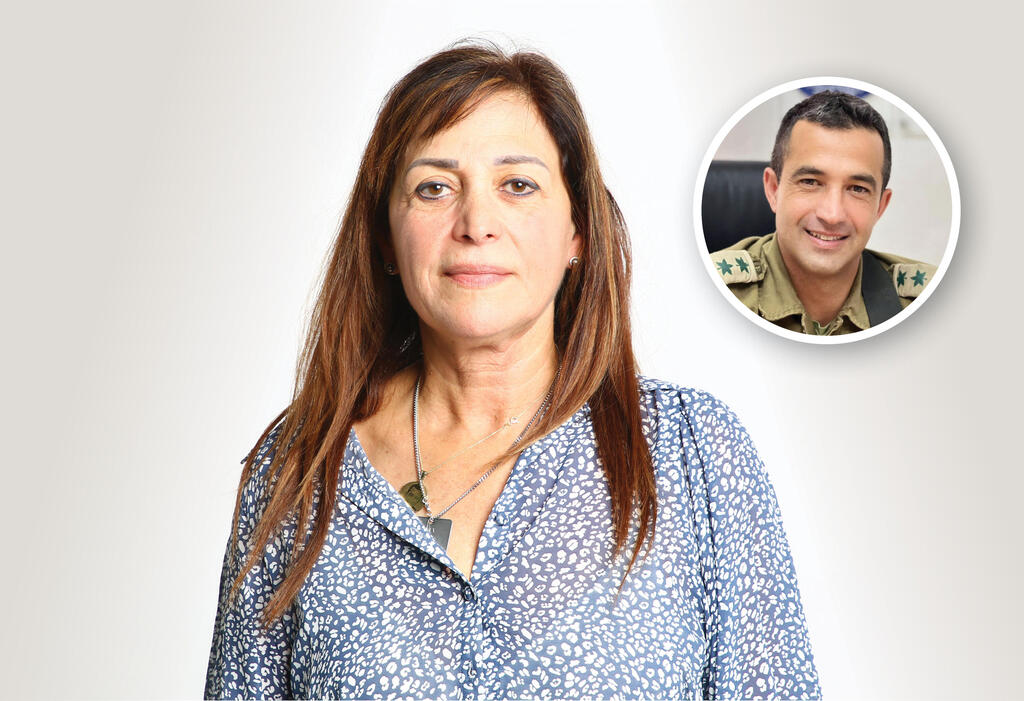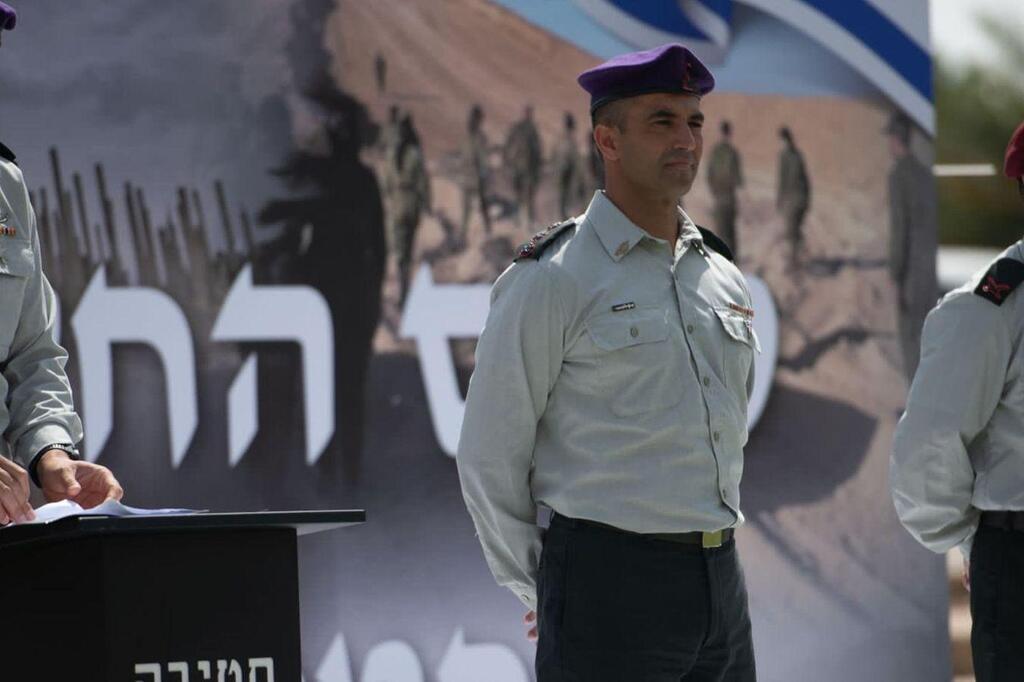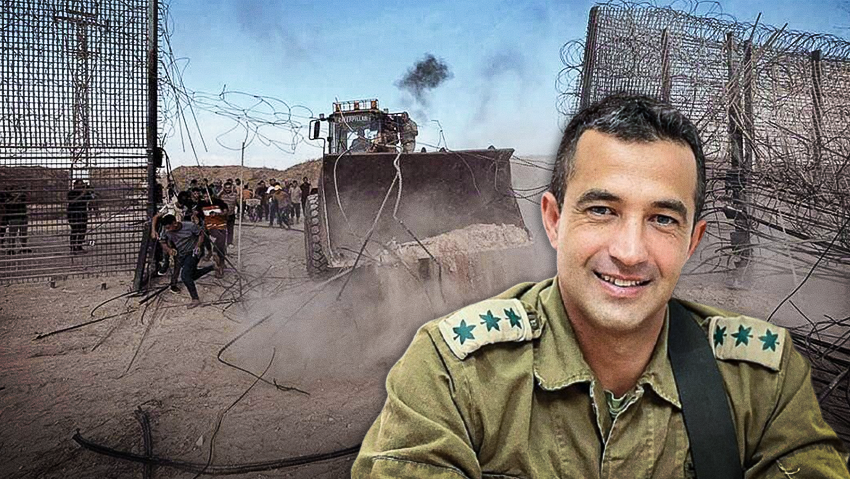Clara Hamami sits with quiet strength, her voice steady but tinged with pain. She speaks not just as a grieving mother but as a woman determined to honor her son’s legacy and demand accountability.
Colonel Asaf Hamami, commander of the Gaza Division's Southern Brigade, fell in battle on October 7, defending Kibbutz Nirim from a brutal terrorist attack. Yet even in her grief, Clara’s words reveal a profound clarity about the war, the hostages and the values she believes must guide Israel through its darkest days.
“I initially thought the fighting should not stop, and not because my son is no longer alive,” she says. “There isn’t a single person in this country who doesn’t want all the hostages to come home, but the fighting doesn’t endanger their lives—on the contrary. The families of the hostages shouldn’t be running this war. That’s why we’re not part of the Hostages and Missing Families Forum. I believe the army knows how to act surgically without endangering the lives of the hostages.”
For Clara, the mission to bring Asaf home is deeply personal. “We’re meeting with people from all over the world,” she explains. “What we have to say, we say in private conversations. I tell them, ‘My son fell on your watch; you will bring him back to me—I don’t care how.’” Her conviction is unwavering. “In the end, I believe everyone will return, and then we will hold everyone accountable—from the head of Military Intelligence to the prime minister.”
A hero’s final battle
The events of that fateful day remain etched in Clara’s mind, a story of immense bravery and unthinkable loss. Asaf had no reason to believe that anything extraordinary would happen that Saturday. His six-year-old son, Alon, was with him on base, a testament to the normalcy he expected.
“At 6:44 a.m., Asaf declared a state of war on his own initiative and went into a heroic battle against dozens of terrorists at Kibbutz Nirim,” Clara recounts. “He fell alongside Command Post fighters Tomer Ahimas and Kiril Brodski. Fortunately, Master Sergeant Raz Bukobza entered the base in a private vehicle, unarmed and managed to free Alon.”
Clara’s voice falters as she recalls the moment she learned her son was missing. “Around 11:30 p.m., we drove to Asaf’s house in Kiryat Ono. The street was dark. We knocked on the door, and no one answered. We thought they were asleep, but then Sapir, his wife, came out crying with the officers and said, ‘Asaf is missing.’ I collapsed on the sidewalk, and they evacuated me to Sheba Medical Center. As soon as I woke up, deep down, I already knew Asaf wasn’t alive. Honestly, it comforted me.”
Grieving without closure
Sitting shiva without a body is a brutal challenge, Clara admits. “On October 16, 2023, they told us there was a high probability that he was no longer alive. Only on November 27, 2023, did the Shin Bet manage to get hold of a video filmed by Hamas and conclude that he was no longer alive. We held a funeral, and there is a grave. When Asaf comes back, there won’t be another funeral—we will simply place him in his spot.”
For Clara, the grave is symbolic, more for her husband Ilan than for herself. “He is already a bereaved brother; his brother fell in a military training accident, and our son Eitan is named after him.”
A life of purpose interrupted
Before the war, Clara lived a quiet life as a Bible teacher. “I lost two of my students in this war: Sagi Idan and Itay Shoham. At 59, I took early retirement. Asaf had just started a new position, and I wanted to help them. He was planning to move to Washington with his family on a diplomatic mission, but reality shattered the plans for our already painful life.”
Her son’s determination and sense of duty remain a source of comfort. She recalls an interview Asaf gave after the 2006 kidnapping of IDF soldier Gilad Shalit by Hamas. “He told [journalist] Alon Ben-David, ‘There’s no scenario where a soldier is taken alive.’ If he had a choice, he wouldn’t have been dragged into Gaza alive. Terrorists specifically targeted him. We were told they entered the division with Asaf’s picture in their pockets.”
Honoring his legacy
In the months following Asaf’s death, Clara and her family have poured their energy into commemorating his life. “We established a scholarship fund in his memory in collaboration with the Peres Academic Center, and we are working to establish the Reservists’ House in Asaf’s name, funded by the Defense Ministry and public and private donors, to create a supportive framework for those who gave everything for the state.”
The family’s work has already borne fruit. “As part of the Reservists’ House, the Sunflower Program has launched, providing support for female reservists and combat support soldiers. Additionally, the Education Ministry initiated a curriculum called Gathering the Good, based on Asaf’s character, values and path.”
Get the Ynetnews app on your smartphone: Google Play: https://bit.ly/4eJ37pE | Apple App Store: https://bit.ly/3ZL7iNv
Despite all her efforts to bring meaning to her son’s sacrifice, Clara admits the pain of his absence is unrelenting. “This circle will never truly close. I still haven’t come to terms with his death.”
Still, she draws strength from the advice Asaf gave her before he was killed. “He always said, ‘Never give up.’ That advice kept us going after he was killed.”
When asked about the worst advice she’s received, Clara is quick to respond. “To follow in Tami Arad’s footsteps and make noise, but I'm not here to stoke flames.” Tami Arad is the wife of Ron Arad, an Israeli airman who was captured in Lebanon in 1986 and has been missing ever since; she became known in Israel for her public campaign to pressure the government to bring him home.




